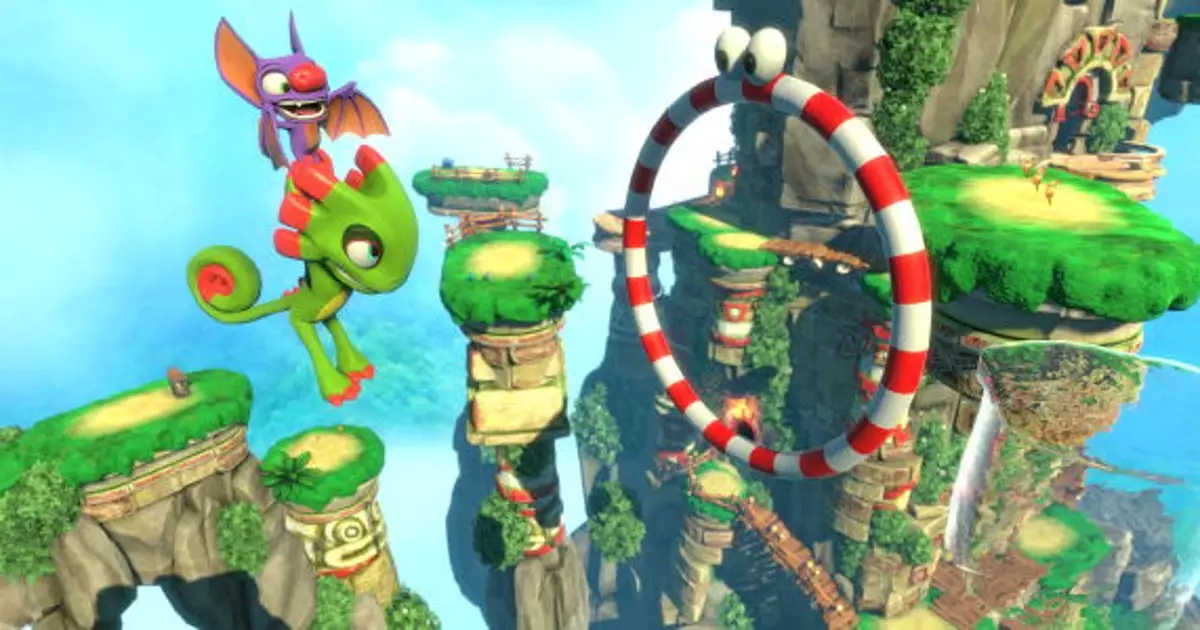Recently, the developer behind the beloved Yooka-Laylee series, Playtonic Games, announced a wave of layoffs that has sent ripples through the gaming community. As the studio grapples with “profound changes” in the gaming industry, a multitude of talented professionals—artists, designers, and engineers—are now left to seek new opportunities. While the statement from Playtonic casts a shadow on the circumstances leading to these decisions, the underlying challenges before the company raise crucial questions about the evolving landscape of game development.
The phrase “profound changes” is shrouded in ambiguity, yet it undoubtedly alerts us to disruptions unfolding in the gaming ecosystem. Whether these changes stem from the increasing financial demands of game development, the growth of subscription services consuming player attention, or a declining interest in platformers—all of these factors might blend into a perfect storm that jeopardizes the livelihood of studios like Playtonic. The game development canvas, once vibrant with originality, seems to be increasingly dominated by massive, monolithic publishers who prioritize franchises that promise steady revenue over audacious innovation.
Understanding the Economic Pressures
The repercussions of an economy in flux ripple throughout all sectors, and gaming is no exception. A significant transition emerged during the pandemic; as people spent more time indoors, the gaming industry witnessed an unprecedented surge in engagement. However, the post-pandemic landscape has proven less forgiving. Many developers, including Playtonic, expanded operations during the boom, only to find themselves needing to retract as the initial interest waned. The industry’s allure to investor capital has soured as costs steadily rose, leading to a misalignment between what consumers are willing to spend and what developers are required to invest.
The situation highlights a central irony—companies that scaled to meet a temporary demand are now forced to cut back while the market finds its new equilibrium. Just as businesses across various sectors re-evaluate their operational frameworks, Playtonic seems caught in this cycle. Its nuanced approach—replacing some valued team members rather than taking more severe measures—speaks to the sensitivity with which companies must navigate these turbulent waters.
The Legacy of Playtonic Games
Founded in 2014 by former Rare employees known for their artistry and charm in game design, Playtonic embodies the very spirit of nostalgia with their dual-character gameplay reminiscent of titles like Banjo-Kazooie. While the first installment may not have set the world ablaze, its sequels clearly showcased a journey toward refinement and evolution. However, it remains uncertain whether these well-received iterations can fortify the studio’s sustainability in the face of changing market demands.
Furthermore, the introduction of Playtonic Friends—its publishing division that collaborates with indie projects—demonstrates a laudable commitment to nurturing creativity outside of the studio. The risks of such ventures, however, are twofold: they position the company as a proponent of diverse gaming experiences while also extending its own financial exposure. This strategic pivot may prove insightful or risky, contingent on a host of external factors such as market trends and competition.
A Community in Transition
Amidst the heartbreak that layoffs bring, the community around Playtonic is a nuanced one. It exemplifies the strength and resilience of game developers—a cohort known for dedication, passion, and creativity. The outpouring of support for departing colleagues, as witnessed through social media, reflects not just camaraderie, but an understanding that these layoffs are more than numbers on a balance sheet—they represent real lives, careers, and dreams momentarily derailed.
In an age where diverse narratives, innovative gameplay mechanics, and unique artistic expressions are increasingly sought after, the community’s strength lies in its ability to adapt. The talent which Playtonic sends into the broader job market may disrupt other studios, ushering in a wave of fresh perspectives and creativity elsewhere. Playtonic’s challenge is embracing this transitional phase while remaining committed to its essence as a developer known for heartfelt, engaging games.
In a world filled with uncertainty, including rising budgets and industry monotony, Playtonic’s journey will serve as a vital case study. It exposes the need for studios to remain flexible and consider new models of game creation and financing, standing strong against tides of change that could drown less adaptable counterparts.


Leave a Reply